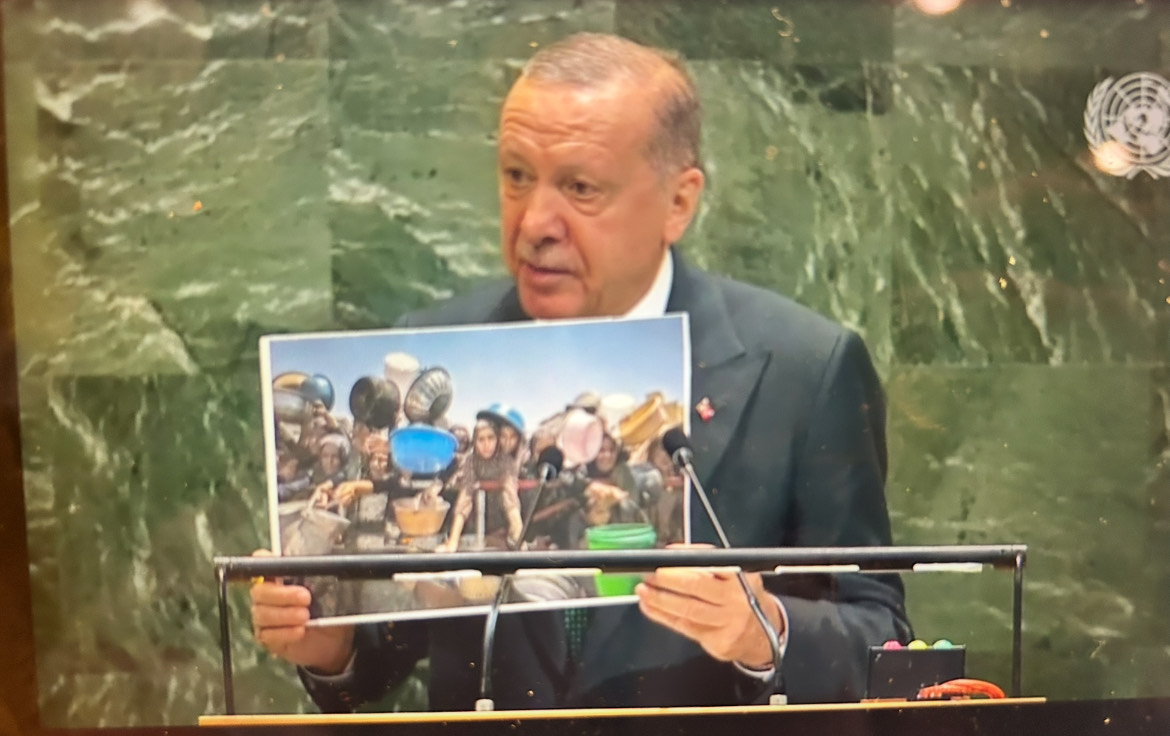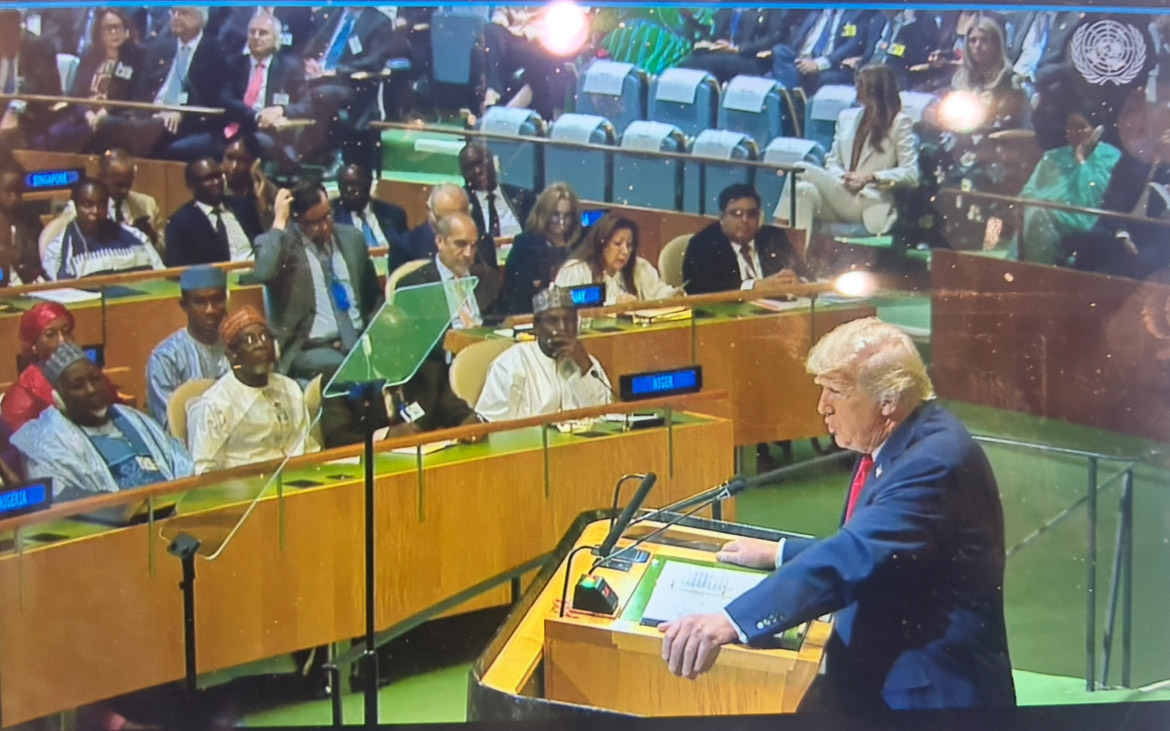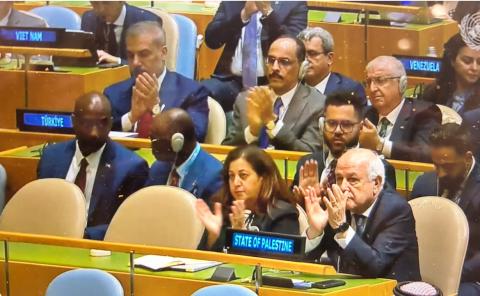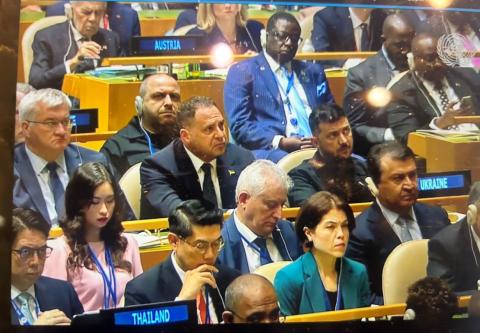Issue:
November 2025
Covering the United Nations is about far more than the general assembly

I have been following the United Nations for U.S. and Turkish media on and off for the past decade or so. My first stint was in 2016 as a fresh graduate from journalism school in New York City, and continued for a year until my move to Japan in 2017. My second tour of duty, so to speak, came last year when I moved back to New York after seven years in Japan.
As has always been the case in its 80-year history, September was the busiest month in the UN calendar for journalists. This was when heads of state arrived in the city for the annual general assembly.
Highlights of this year included the hourlong meandering speech by U..S President Donald Trump – his first at the UN since he returned to the White House – in which he blasted the global body as “having such great potential but not even coming close to living up to that potential”. It is also worth mentioning White House claims that Trump’s teleprompter malfunction and the incident on the escalator were due to “sabotage” – accusations denied by UN officials.

Although I never realized my post-career plans to become a diplomat after graduating from the International University of Japan, years later I found myself at the center of the diplomatic world, albeit as a journalist questioning diplomats and not, thankfully, vice versa.
I often have to point out to people I meet for the first time here in the U.S. that I’m reporting – and rather critically at that – on the UN and not for it. (The UN has its own media division, which handles the live streaming of the security council, the general assembly, and other sessions.)
A behemoth with various moving parts, the UN has a lot going on throughout the year, offering a wide range of reporting opportunities for journalists covering the diplomacy beat.

Palestinian Permanent Observer to the United Nations Riyad Mansour reacting to a speech recognizing the State of Palestine during the United Nations General Assembly in New York City on September 23rd. (Credit: Ilgin Yorulmaz via UN TV) 
Ukrainian President Volodimir Zelensky listening to Donald Trump’s address to the United Nations in New York City on September 23rd. (Credit: Ilgin Yorulmaz via UN TV)
Active conflicts such as Gaza and Ukraine aside, topics worth reporting include poverty, human rights abuses, climate change, women’s rights, and freedom of expression (a personal favorite). These, along with initiatives such as the Sustainability Development Goals, UN accountability, efficiency and governance are bread and butter for journalists.
In May 2016, I was a graduate fresh out of Columbia Journalism School when I started writing for PassBlue in New York City, a digital non-profit publication edited by the former New York Times editor Dulcie Leimbach.
For my first big story, headlined “Cloaked in Secrecy”, I reported on how Saudi Arabia’s $100 million gift to UN counterterrorism efforts was being spent.
I remember feeling nervous, despite finally securing an interview with a Pakistani diplomat who was director of the UN Counter-Terrorism Implementation Task Force. When no one from the UN Counter-Terrorism Center, which actually received the said donation, agreed to speak, he saved me and my story.
Years later, I would learn that “no comment” in diplomatic-speak can often mean “I can’t say anything right now, but come back another time when the heat is off me.” For evergreen stories, persistence pays off big time – especially these days, when the U.S. media are being ostracized by all sides for different reasons.
I also learned that one's nationality or long affiliation with a particular country can open or close doors. These days, diplomats, including those from my native Turkey, are even more tight-lipped when it comes to speaking to the media unless they have an agenda to promote.
Reporting on the UN also teaches journalists how hard it is to be neutral. Since arriving in New York I have interviewed the ambassadors to the UN of Laos on de-mining unexploded ordnance left by the U.S. military, and of Kuwait on its past UN resolutions on using hunger and the denial of humanitarian access as tactics of war, and addressing the issue of missing people. The latter is eerily reminiscent of both the Palestinians’ plight and the Israeli hostages’ ordeal at the hands of Hamas.
The UN has the United Nations University in Jingumae, which also houses offices for various UN bodies, including the United Nations Industrial Development Organization (UNIDO). The first time I set foot in Japan was in the winter of 1991 as an intern at the UNIDO Tokyo office, then located in the Aoyama Twin Tower building. Now that I’m reporting on the UN itself, I feel like I've come full circle.
Ilgin Yorulmaz is a freelance Turkish journalist and co-chair of FCCJ’s Freedom of Press Committee. In the past, she also served as the Secretary and the 2nd Vice President of FCCJ.

